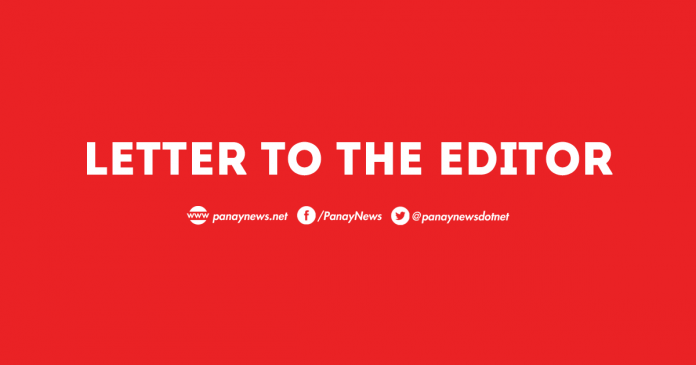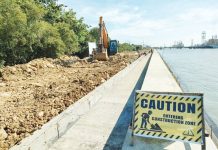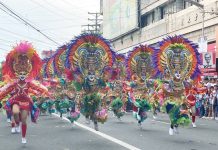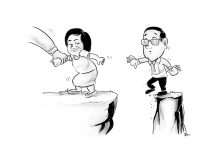
FIVE YEARS after he was assassinated, the family of Jose Reynaldo “Jory” Porquia, Bayan Muna Coordinator for Iloilo City, brought a complaint against the Philippines before the Human Rights Committee, the international body that monitors the implementation of the International Covenant on Civil and Political Rights (ICCPR) and hears cases concerning alleged violations of that treaty.
Jory Porquia was a labor leader, environmentalist, and community organizer. He advocated for migrant workers’ rights as a member of the progressive group MIGRANTE, led the successful campaign to stop mining operations in Panay as part of the Madia-as Ecological Movement, and as Bayan Muna coordinator, he helped organize and operate community kitchens that catered to poor families hit hardest by the government-imposed COVID-19 lockdown.
For his advocacies and decades of service to the community, Jory was shot and killed by multiple gunmen in the morning of April 30, 2020 just as he was about to leave his house in Barangay Sto. Niño Norte, Arevalo, Iloilo City. His murder came after months of red-tagging and surveillance by the Philippine National Police. Despite claims by the government that it is investigating the incident, no perpetrator has been identified or prosecuted to this day.
The complaint filed with the Human Rights Committee by the Porquia family, assisted by the National Union of Peoples’ Lawyers, ascribes to the Philippine government violations of the right to life under Article 6 and the right to an effective remedy for the violation of that right under Article 2(3) of the ICCPR.
The Philippines is a State Party to the ICCPR and its First Optional Protocol – a mechanism that allows the Human Rights Committee to receive complaints brought by individuals against states, decide whether there has been a violation under the ICCPR, and determine the nature of the state’s responsibility for such violation.
Jory was among more than a dozen human rights advocates killed by state forces in Panay in 2020 alone. Other victims included John Farochilin, the chairperson of Alyansa sang mga Mangunguma sa Miag-ao (Alliance of Farmers in Miag-ao) and a council member of the Paghugpong sang Mangunguma sa Panay kag Guimaras (PAMANGGAS), who was killed two days earlier in Barangay Cabalaunan, Miag-ao, Iloilo by soldiers. By the end of year, on December 30, nine leaders of the Tumandok communities were massacred by police and military operatives in rural villages across Capiz and Iloilo.
Jory’s assassination was taken up by Ms. Irene Khan, the UN Special Rapporteur on freedom of expression, in her September 2024 communication to the Philippine government where she raised concerns over widespread red-tagging, the pattern of attacks and judicial harassment against activists, and the “pervasive impunity” surrounding these cases. Hers is but the latest in a series of communications and reports from domestic and international human rights experts aiming to draw attention to the targeting of activists in the Philippines.
The Porquia case is emblematic of the systematic nature of the attacks against leaders and members of progressive organizations like Bayan Muna. In his 2008 report, UN Special Rapporteur Philip Alston cited two state policies that explain the widespread killing of activists in the country. The first was the military’s counterinsurgency strategy that increasingly focused on dismantling civil society organizations alleged to be “fronts” of rebel groups. The second was the Philippine justice system’s failure to hold the perpetrators to account. “The priorities of the criminal justice system,” according to the Alston report, “have also been distorted, and it has increasingly focused on prosecuting civil society leaders rather than their killers.”
After Jory’s assassination, the members of his family including his son Lean Porquia – a labor leader in his own right – and the human rights defenders helping them faced vicious red-tagging from the government, particularly the National Task Force to End Local Communist Armed Conflict (NTF-ELCAC). They were also prosecuted on various trumped-up charges brought by the police, the military, and the Department of Justice. Jory himself, just days before his death, was the subject of a criminal complaint filed by the PNP for speaking at a public protest to demand more aid for impoverished communities during the COVID-19 lockdown. The judicial harassment, arrest, and detention of a person on fabricated evidence in order to suppress criticism and protest are also violations of rights guaranteed under the ICCPR.
From 2001 up to the present, human rights monitor KARAPATAN has documented around 2,100 cases of extrajudicial killings involving activists, environmental and land rights advocates, and members of progressive groups red-tagged by government. It also reported that there are around 762 political prisoners across the country, 154 of whom were arrested under the administration of Ferdinand Marcos Jr.
These figures underscore that, regardless of the administration in power, the Philippine government continues to systematically persecute and attack progressive activists and, as reflected in the 2008 Alston report, foster impunity by weaponizing the justice system against the victims and their families.
With their complaint before the Human Rights Committee, the family of Jory Porquia hopes to bring attention to the ongoing persecution of activists and human rights defenders in the Philippines and to call out the government for its responsibility for serious human rights violations and for maintaining a system that ensures impunity and deprives the victims of justice.
Justice for Jory Porquia and all the victims of extrajudicial killings!
Stop the attacks and the persecution of activists! – PANAY ALLIANCE KARAPATAN <panaykarapatan@gmail.com>



![FLOOD CONTROL SCANDAL: Ombudsman cases filed vs DPWH staff, contractors “This [flood control scheme] is a corruption on a scale that we have not seen in the past,” says Public Works Secretary Vince Dizon. “The Napoles scandal is like petty change compared to this.”](https://www.panaynews.net/wp-content/uploads/2025/09/Ombudsman_copy_resized-218x150.jpg)



